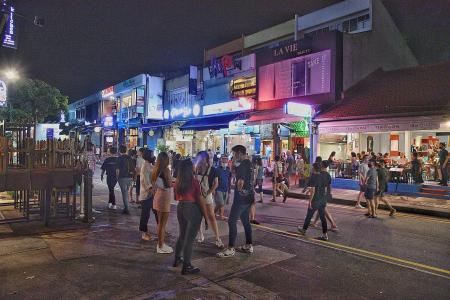Experts say rise in community cases a concern if it persists
They say Singaporeans cannot afford to be complacent despite clear sense of 'crisis fatigue'
Singapore has seen an uptick in community cases 12 days into phase two of reopening the economy, which will be a concern if the trend continues, say experts.
More than ever, people need to be vigilant and cautious, despite a clear sense of "crisis fatigue", with many keen to return to their usual habits, said Professor Teo Yik Ying, dean of the National University of Singapore's Saw Swee Hock School of Public Health.
"This is when we need to be even more careful, when we collectively start to let down our guard," he told The Straits Times.
He stressed that the country is still very much in the midst of an outbreak and remains in Dorscon orange - signifying a disease situation with moderate to high public health impact.
This comes as cases soar worldwide, with over 10 million cases to date and many countries struggling with flare-ups as lockdowns are lifted.
"Globally the pandemic situation has only gotten worse, and not better," said Prof Teo on Sunday.
"Certainly the situation in some countries looks like they are lifting lockdown even before they have properly contained their first wave of infections."
LONG ROAD AHEAD
While the figures have been encouraging so far, with no significant spike in numbers, there is a long road ahead, said Associate Professor Josip Car, director of the Centre for Population Health Sciences at Nanyang Technological University's Lee Kong Chian School of Medicine, yesterday.
"The long-term impact of Covid-19... cannot and should not be underestimated; no one and no nation can afford to be complacent."
He emphasised the importance of scrutinising new unlinked community infections, which might indicate possible future trends the virus is taking; new clusters, as intermingling increases; and the profile of infected patients, which helps to identify at-risk groups.
Associate Professor Alex Cook, vice-dean of research at the Saw Swee Hock School of Public Health, said on Sunday that the country was now in a good position to handle any short-term resurgence in cases, given the low number of Covid-19 patients now needing critical care.
But phase two has not been without hiccups. The authorities have closed some outlets and meted out fines to those caught flouting the rules.
Prof Teo said: "We should try to do better to identify such lapses in advance, and not wait until a case or, even worse, a super spreading event has occurred... As time passes, fatigue and hubris will set in... "
Prof Car said such incidents will also teach the country how best to introduce more activities amid the pandemic and whether Singapore can afford the potential risks such activities pose.
Professor Dale Fisher, a senior infectious disease consultant at the National University Hospital, said yesterday that he was concerned about the crowding and lack of social distancing that he has seen first-hand.
"Before you get an increase in cases, you see an increase in risk," he warned.
"People need to see what's happening now (the freedom to go out) is a privilege, and that can be taken away again."
Proper ventilation and effective mask usage, as well as regular cleaning of high-touch surfaces such as tables and railings, will also be critical for operators, Prof Car added.
Get The New Paper on your phone with the free TNP app. Download from the Apple App Store or Google Play Store now



